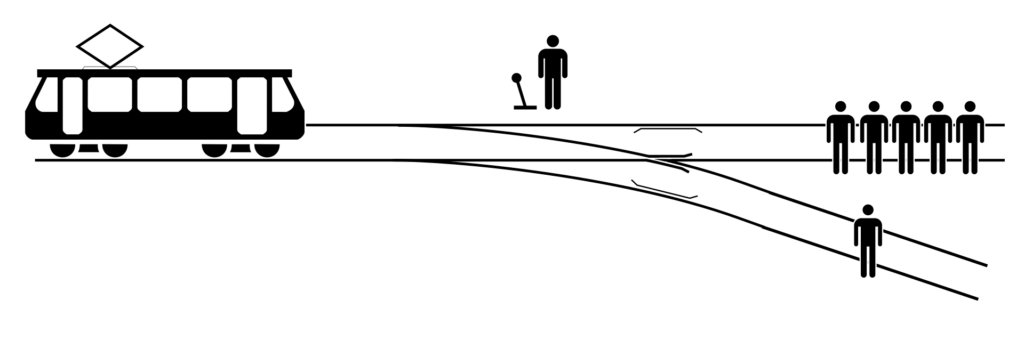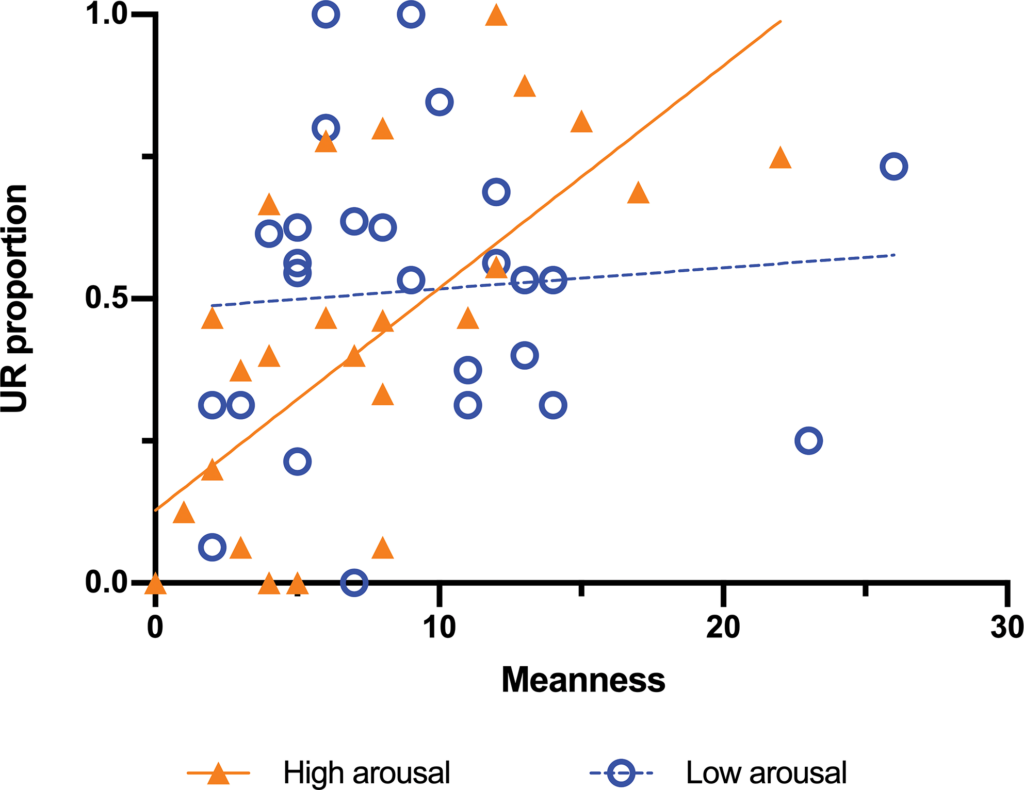The journal PLoS ONE has published our last paper, providing new information on the process of making moral decisions. Specifically, the study explores the phenomenon known as the “Foreign Language effect”, which occurs in bilingual individuals when facing a moral dilemma in their two languages. This effect has been observed even in early bilinguals of Romance languages such as Italian and Venetian, but until now, it was unknown whether it occurred in Catalan-Spanish bilinguals.
The full article is available at the following link. A little story with an infography and a plain explanation of the article is available at Kudos.
Below, we highlight the key points of the paper.
Second language effect
According to previous studies, when bilinguals respond to a moral dilemma in their second language (even when they have learned it almost simultaneously with the first), they tend to give more utilitarian responses, accepting causing harm if it prevents greater harm. In contrast, in the first language, they tend to give more deontological responses, avoiding causing any harm, even if it harms more people. For example, in the typical trolley problem, where a malfunctioning train is heading uncontrollably towards five people working on the track, individuals facing the dilemma in their second language tend to respond that they would pull a lever to divert it to a track where there is only one worker (utilitarian response). In contrast, if the dilemma is presented in the first language, the tendency is to respond that they would not participate under any circumstances (deontological response), letting the train follow its course.

McGeddon, CC BY-SA 4.0 <https://creativecommons.org/licenses/by- sa/4.0>, via Wikimedia Commons
Our study
Contrary to previous studies where the effect of the second language was observed even in early bilinguals, our study shows that this second language effect does not occur in early Catalan-Spanish bilinguals in the Balearic Islands. The article, titled Meanness trumps language: Lack of foreign language effect in early bilinguals’ moral choices, contributes to understanding how linguistic and psychological factors intertwine with the intrinsic characteristics of moral dilemmas at the moment of decision-making.
Psychopathic traits
One of the most notable findings of this research is the significant influence of psychopathic personality traits on moral decisions. In this regard, participants with higher scores in the trait of meanness show a notable tendency towards more utilitarian responses (causing harm to prevent greater harm). Additionally, the article emphasizes the importance of considering the interaction between emotional arousal and meanness when evaluating people’s moral decisions.

Figure from the published article (Flexas et al., 2023), showing how Meanness correlates with the proportion of utilitarian responses (UR proportion) at high levels of emotional arousal (High arousal), but not when the person describes the dilemma as low emotional (Low arousal).
To learn more
Other results of the article emphasize the importance of research always taking into account a series of characteristics of moral dilemmas, such as personal involvement, who benefits, or whether the harm is avoidable or not. Our colleague Albert Flexas explained these factors with a more realistic and contemporary example during his talk at TEDxUIB in 2020 (available on video at Youtube – in Spanish).
Media coverage
TV
2024/07/14
- IB3 Notícies Migdia (Catalan)
2024/07/13
- IB3 Notícies Vespre (Catalan)
Press
Online editions
2024/09/24
- The Conversation (Spanish)
2024/07/18
2024/09/01
- Diario de Mallorca (Spanish)
- Última Hora (Spanish)
- Menorca.info (Spanish)
- Diari de Balears (Catalan)
- COPE (Spanish)
- Diario en positivo (Spanish)
- Córdoba buenas noticias (Spanish)
- El Nacional (Catalan/Spanish)
- UIB Information Note (Catalan/Spanish)
2024/04/01
- Ara Balears (Catalan)
Printed editions
2024/01/25
- Mallorca Zeitung (p. 23, in German)
2024/01/10
- Diario de Mallorca (Front page + p.12, in Spanish)
- Última Hora (Back cover, in Spanish)
Reference
Flexas A, López-Penadés R, Aguilar-Mediavilla E, Adrover-Roig D (2023) Meanness trumps language: Lack of foreign language effect in early bilinguals’ moral choices. PLoS ONE 18(11): e0294523. https://doi.org/10.1371/journal.pone.0294523

